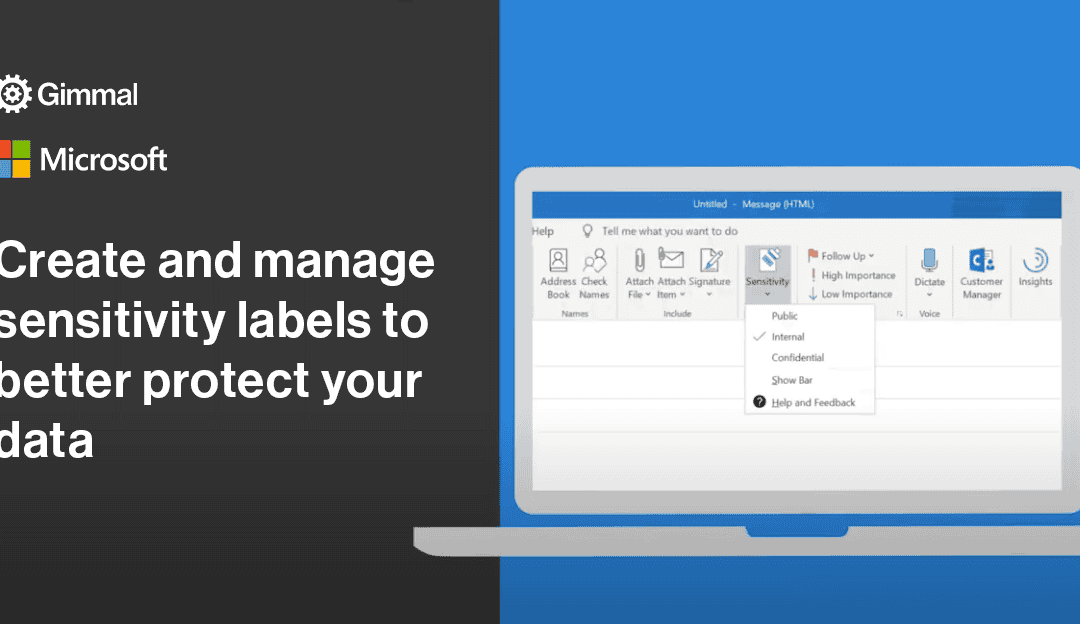
Written by Gimmal Product Marketing

Data privacy isn’t just a buzzword—it’s a fundamental expectation from consumers and a critical responsibility for businesses
With the rapid proliferation of data protection laws across the globe, organizations are finding themselves navigating a complex landscape of regulations. But here’s the good news: while the realm of data privacy may seem overwhelming, focusing on common frameworks and actionable steps can make compliance not just possible, but manageable.
YouTube Video: Privacy, Please! Keeping Up with Data Protection Laws
The Evolution of Data Privacy Laws
Back in 2018, the European Union shook the world with the introduction of the General Data Protection Regulation (GDPR). This comprehensive regulation set a new global standard for data privacy, emphasizing individual rights and organizational obligations in handling personal data.
Fast forward to today, and the ripple effect of the GDPR is evident. In the United States alone, 20 states have enacted their own data protection laws, with more on the horizon. From California’s pioneering Consumer Privacy Act to New Jersey recently “joining the party,” these laws span across red and blue states, east to west coast, reflecting a nationwide commitment to safeguarding personal information.
Overcoming the Overwhelm: Embracing Common Frameworks
At first glance, the patchwork of state laws can seem daunting. Different regulations, varying requirements—how can businesses possibly keep up? The key lies in recognizing that these laws are more alike than different. They’re converging around common principles and frameworks inspired, in part, by the GDPR.
Tom Corey, an attorney and Certified Information Privacy Manager, emphasizes that focusing on these commonalities makes compliance more straightforward. Instead of getting lost in the minutiae of each law, organizations should hone in on the core elements that most regulations share.
Data Privacy Is Everyone’s Responsibility
Privacy isn’t just the concern of the legal department or compliance officers—it’s an enterprise-wide function. Whether you’re in marketing, IT, risk management, or records management, you play a vital role in protecting personal data.
Kim Tran from Gimmal underscores the importance of bridging organizational gaps: “It’s really about mission possible—everyone from compliance to risk management, information governance, and legal needs to work together. Data protection is just as much my job and responsibility as anybody else’s in the organization.”
The Basic Framework of Data Protection Laws
Understanding the fundamental structure of data protection laws can demystify the compliance process. Most laws encompass four key areas:
- Scope of Laws: Determining who is covered and who must comply.
- Individual Rights: Defining the rights of consumers regarding their personal data.
- Business Obligations: Outlining what organizations must do to uphold these rights.
- Enforcement Mechanism: Explaining how the laws are enforced and the consequences of non-compliance.

Five Actionable Steps for Businesses
To help businesses navigate the complexities of data protection laws, Tom highlights five key obligations that organizations can act upon:
- Develop a Clear Privacy Notice
Transparency is paramount. Your privacy notice should be easy to understand, concise, and readily available—typically on your website’s homepage. It should inform consumers about what personal data you collect, how you use it, and their rights regarding that data.
- Enable Consumer Rights Requests
Empower consumers to exercise their rights. Provide at least two methods for individuals to submit requests, such as a toll-free number, email address, or online form. This accessibility is not just a legal requirement but also fosters trust with your customers.
- Establish a Response Workflow
Once you receive a request, have a structured process in place to respond within the legally mandated timeframe (usually 45 days). This includes acknowledging receipt, verifying the individual’s identity, assessing the request, and taking appropriate action.
- Conduct Data Protection Assessments
Regularly assess your data processing activities to identify and mitigate risks. These assessments help ensure that you’re not just compliant on paper but in practice, promoting a culture of privacy within your organization.
- Limit Data Collection and Retention
Adopt the principle of data minimization. Collect only the personal data that is reasonably necessary for your legitimate business purposes and retain it only as long as needed. This reduces the risk of data breaches and demonstrates respect for individual privacy.
Privacy by Design: Incorporating Privacy from the Start
One of the most effective strategies in data privacy is adopting privacy by design. This means considering privacy at every stage of a project or policy development—not just as an afterthought. By involving your privacy team from the outset, you can prevent violations before they occur and create processes that respect consumer rights.
Tom advises, “Anytime you’re working on a process, incorporate privacy from the beginning. They’re going to be your greatest advocates.”
Don’t Panic—Prepare
It’s natural to feel overwhelmed by the sheer number of laws and regulations. However, it’s important to remember that the increase in legislation actually makes compliance more accessible. With more standardized requirements, businesses can develop unified strategies that address multiple laws simultaneously.
As Tom aptly puts it, “If you adopt these general privacy frameworks, regardless of whether your state has a law or not, you’re going to be of good service to your customers and clients.”
Conclusion
Data privacy isn’t just about avoiding fines or legal repercussions—it’s about building trust with your consumers and demonstrating that you value and respect their personal information. By focusing on common frameworks, fostering collaboration across departments, and taking actionable steps, you can navigate the evolving landscape of data protection laws with confidence.
Remember, privacy is a journey, not a destination. Stay informed, stay proactive, and make privacy a core part of your organization’s culture.
Ready to Enhance Your Data Privacy Strategy?
Navigating the complexities of data protection laws doesn’t have to be overwhelming. Gimmal is here to help you build a robust information governance framework that ensures compliance and protects your organization’s reputation.
Contact us today to learn how we can support your journey toward better data privacy and compliance.
Ready to Learn More?
Get started by filling out the form below, and let us help you leverage your existing infrastructure with minimal disruption. Whether you’re looking for ease of use, a single platform solution, or guidance on information governance, we’re here to assist.
Related Content

Past Events
Past Events From trade shows to national conferences, see past events Gimmal has hosted and attended. 12 June INFORM25: Unlock the Future of Information Governance – 8 Weeks to Delete or Call Me After the Breach Thursday, June 12 2025 | 4:30pm to 5:30pm |...
Information Governance vs. Information Security — What’s the Difference?
Information Governance vs. Information Security — What’s the Difference? May 1, 2025 Information is the backbone of modern organizations. Yet, managing and protecting it requires clarity about overlapping but distinct disciplines: information governance and...
Get Ready for the EU AI Act: What You Need to Know and How to Prepare
The EU AI Act: What You Need to Know and How to Prepare Apr 23, 2025 The European Union Artificial Intelligence Act (EU AI Act) is one of the most significant regulations to impact businesses leveraging artificial intelligence (AI). As the first of its kind, this...
Why Your Data Cleanup Efforts Are Probably Failing
Why Your Data Cleanup Efforts Are Probably Failing Mar 13, 2025 Data cleanup feels like the house chore everyone knows they should do—yet it rarely makes it to the top of the to-do list until something goes catastrophically wrong. You may have heard it explained in...

Gimmal Extends Microsoft Purview Information Protection Solution for Enhanced Sensitive Data Labeling and Governance
Thursday, June 20, 2024 – HOUSTON, TX – Gimmal, the market’s only end-to-end information governance platform, announced today the launch of their Microsoft Purview Sensitivity Labels solution to extend and enhance sensitive data classification for unstructured...

